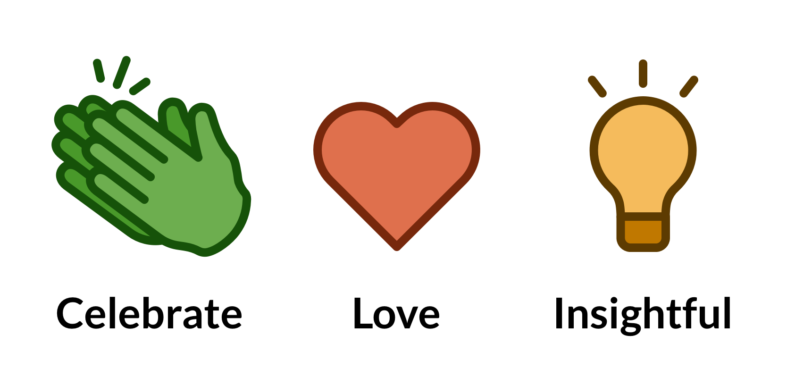
Facebook launched its ‘reactions’ back in February 2016. We have now eased into using angry face, haha, love etc. on the many posts we Like.
I wrote about the with a series of futuristic scenarios.
I’m glad to announce that nobody cares for reactions seriously enough, and such scenarios haven’t become normal. Thankfully.
I don’t think anyone, or any brand for that
LinkedIn is following suit, in 2019! .

I also love the .
I’m a HUGE believer in LinkedIn, as a platform. I believe it has terrific utility value for professionals even as the implied rules of what is appropriate for LinkedIn is being tested by its members now, frequently.
But I’m not a fan of this button’ization of emotions. Not on Facebook, earlier. And not on LinkedIn, now.
Button’izing emotions is lazy.
At least with the Like, in hindsight, you could argue that for most things in life, a simple acknowledgement—fast and easy—is a decent feedback. In a perfect world, that acknowledgement would be verbalized, with some effort, commensurate to the original post. But, increasingly social media and its busy timelines have forced us to be less thoughtful and more snappy, with our reactions. So, buttons for Likes, instead of leaving a comment.
Now, when you expand these emotions with more buttons, we are further removing thought from conversation online.
On one hand, social media platforms are expanding the possibilities of self-expression, with more and more emojis, 20-second videos on TikTok (karaoke’ing to others’ music), countless filters on Snapchat and Instagram.
But on the other, self-expression using language is being disincentivized! If language was the original tool for expression, that is being rewritten with a new button and filter-based language for social media.
I really appreciate the effort people put into leaving comments on LinkedIn, more than any other online platform. Facebook seems more like a broadcasting platform targeted at friends, families, and people known to us. It gives them a ring-side view of what is going on in our lives, and mind. Twitter, in contrast, is a broadcasting platform targeted at strangers, giving them a ring-side view of what is going on in our lives, and mind, carefully curated by us, of course.
Earlier, Twitter was supposedly meant for conversations, but nowadays, I find tremendous value in conversations on LinkedIn. Not just in response to what I post, but others’ posts as well – the comments are where I get to learn other opinions and perspectives, almost like overhearing a professional offline discussion in a relevant event.
This is primarily because LinkedIn is the ONLY platform online where anything you say is tied immediately to your business card/CV. So, most people usually behave and try to be largely sane/useful.
But, with this new button’ization, I do fear that the level of conversation may reduce and people simply choose to click a button instead of articulating their thoughts in the form of comments. I genuinely hope I’m proven wrong.
